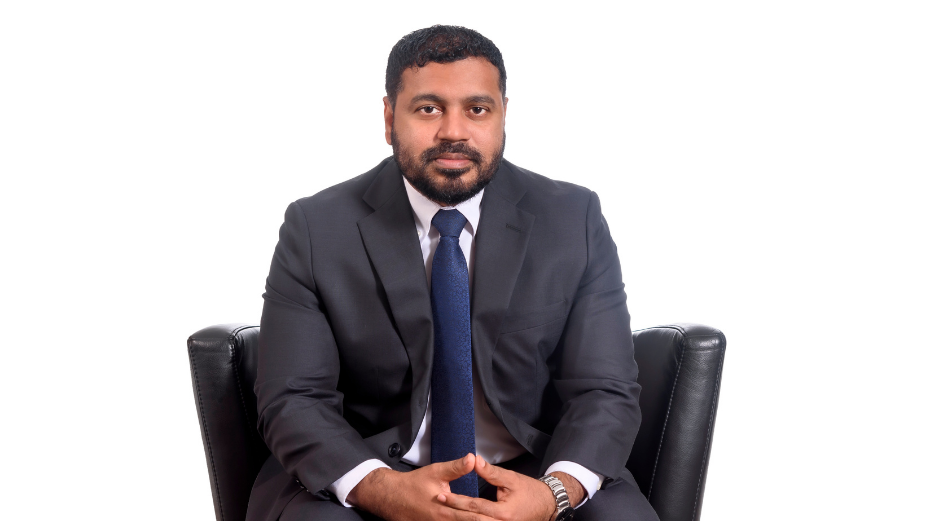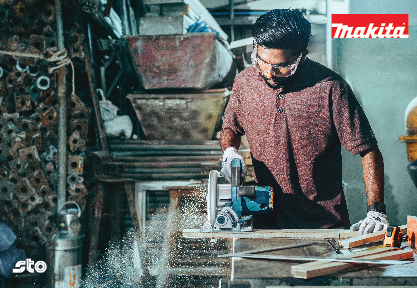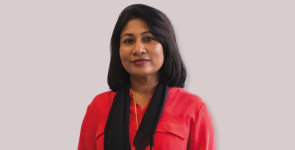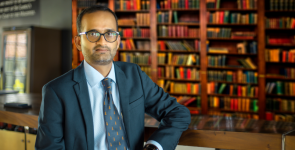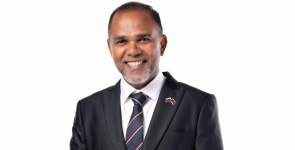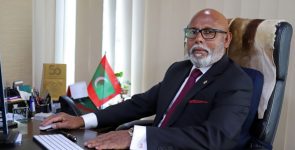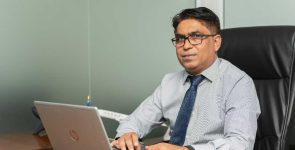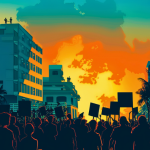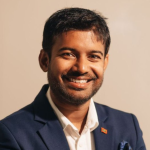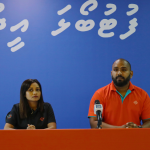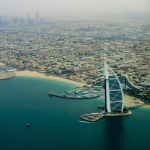Mr. Hassan Mughnee is the Managing Director of STELCO, a state-owned company tasked with providing electricity and power generation services in the Maldives. Our team sat down with Mr. Mughnee to find out more about his career, and how he has managed operations at STELCO so far.
Could you tell us a bit about your career?
After I finished school, I started my career with Bank of Maldives. It was at a very young age, approximately 15 or 16 years. After that, I studied again for a little while, after which I worked at MNDF, and then at MWSC. After that, I worked at the Elections Commission as the Director General, then at MTCC as the COO, before working at STELCO. Then, I worked at another independent commission, the National Integrity Commission, and then back at STELCO. So that’s basically how my career moved – from various infrastructure SOEs to independent institutions.
Since you began your role as Managing Director at STELCO, how have you impacted the lives of your employees?
Notably, we didn’t have a corporate culture before. The ‘culture’ used to be simply requesting the PO office to ask them what they want us to do, and doing that. That was the basic culture, and that is how it was run for a very long period of time. When I came here, and when I realized how outdated the mindsets of the staff were, I felt very sympathetic towards them. It was very sad, actually. But now, we are trying to develop a corporate culture where the leaders and managers help the most junior staff. Where they teach them, help them become better, so that their own roles can be fulfilled by the lower-level staff at a later period of time.
Our collective aim should be to grow the organization and provide higher-level pay scales and higher-level positions to those who are capable, while expanding at the same time. The advantage here is that we are providing motivated engineers an opportunity to show their skills. In reality, it is very boring for a qualified engineer to carry out the basic services that STELCO provides. What we do as a company is very routine. The creativity of our staff will only shine if we foster their ideas and help them turn it into a reality. So that is what we are trying to do.
We also aim to be a gender equality champion. In this field of work, we don’t see a lot of women. We try to bring them in, because the energy sector is actually a relatively well-paid industry. I believe that since 50% of the population is female, we have to give the same opportunity to them. We also try to provide opportunities for people with special needs. In fact, we’re trying to implement a certain quota for them within our operations.
Could you tell us about some of your CSR activities?
As a company, STELCO touches all the areas of our society, not only in electricity, but in many other areas too. I think, especially during the time of the pandemic, we have been one of the few organizations that donated to various NGOs such as Tiny Hearts, Care Society, and more. I believe it is our corporate responsibility to regularly give back to those who need it. We have also sponsored sports events to encourage greater youth participation.
Another area we try to focus on is heritage. We have been involved in the renovation of Hukuru Miskiy, the Minaret, and the Medhuziyaaraiy Shrine. Our aim is to make these places more accessible so that the public can visit and experience our culture; I think that is a very important aspect of our country.
How do you ensure the company’s quality of service?
We regularly maintain statistics and monitor our service. How many times is electricity disrupted within a year? How many minutes? We have actually reduced these statistics by about 50 to 70% within the last three years. I think that is quite an improvement.
We are also trying to increase the quality of our service in the islands. Earlier, high priority was given to Male’, and hardly anything was done in the islands. However, I believe as a company, we should be able to provide the same service in all islands which has a STELCO branch. The same rules should apply. After I was appointed, we began connecting the islands to our network of services, which means that a customer in Male’ can pay his bill even if he or she is on an island. So, we have carried out that type of integration. Furthermore, we have contingency plans in place for possible failures. Even in the islands, the network upgrades, powerhouse upgrades, and transformer introductions are conducted every year.
Even though STELCO is an SOE, we have an obligation to maintain and improve our service quality, and therefore we constantly strive to better ourselves. Another accomplishment I’d like to note is that all of our departments are ISO certified. Many companies may market themselves as ISO certified, but in actuality, it is often one or two departments that are certified. We are the first company in the Maldives to be ISO certified in all areas of our operations.
How did STELCO manage its operations during the COVID-19 pandemic?
If we had failed for a single minute during the COVID period, I don’t think anyone would have been able to stay at home. I believe we were the primary company to have provided the best services during that period. From the day the government announced the lockdown, we stationed some staff inside our premises to ensure continuity of service. We provided beds and food, and managed logistics for about a hundred staff in this way. As a result, we were able to provide services without failure in the Greater Male’ area.
Furthermore, if someone had an issue with electricity, they would have been unable to get an electrician, as no one could be outside during the lockdown. Normally, we do not attend internal wiring issues at houses, but at that time, under our CSR initiatives, we helped them.
You mentioned that STELCO has been touching all aspects of human life. As such, the company empowers sustainability with the Green Life Initiative. Could you tell us a bit more about that?
Our aim is to encourage people to use more renewable energy. One of the challenges that customers face is that it is relatively expensive to purchase and maintain solar panels. Not only this, after they purchase them, they do not have the technical skills to maintain them on their own.
We came up with a practical plan where customers can pay in instalments. The way it works is that, the instalment is paid by the customer from the savings of the electricity bill. Further, we provide all the necessary service, support and maintenance required by our clients. Our Green Life Initiative helps reduce the carbon footprint, so that our customers can consume energy in an eco-friendly way.
What are the future plans you have for STELCO?
In the future, I would like to see us expanding further into business areas that are relevant to us, such as the tourism industry. I would also like to see us grow into an international company, and export our products to other countries.
We also have plans to improve our R&D department, to come up with new products which are relevant to our environment. We have a unique environment. We don’t have too much land; we have the sea. I believe we should work to harness its energy. Even globally, not much research or funding is being done in this regard, so I want to work towards this in the future.
What do you consider your greatest personal success?
I think the biggest success for me is to see those who have worked with me in other leadership positions. If I can teach them something and improve their capacity, I think that will be the biggest happiness for me.
Apart from that, I have achieved many successes in my career. For example, when I joined this company, we were making a huge operational loss. We have since managed to reduce the operational costs so much, that now this company is no longer running on an operational loss. This is a huge turn around for the company. Not only at STELCO, but every organization I have worked at, I am proud to say that I have led significant projects that positively impacted operations in a very major way.
Lastly, do you have any words of advice for young people who want to enter the industry and succeed?
If you are working towards what you truly want, success will naturally follow. Because if you really want it, then you will actually work for it.
Proper discipline and a positive attitude are also important. Superiors will always notice staff with a positive attitude. If they know they can depend on you, you will likely get more privileges. A psychological connection will form between you and your superior, and so, there will be a higher chance that you will get promoted. Sometimes, obviously, others might call you names and taunt you. Don’t care about what they say. If you really want to climb the ranks, you have to put in the effort and work for it in a realistic manner.


